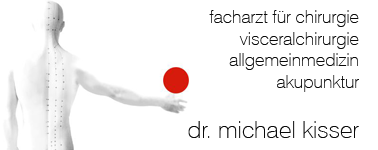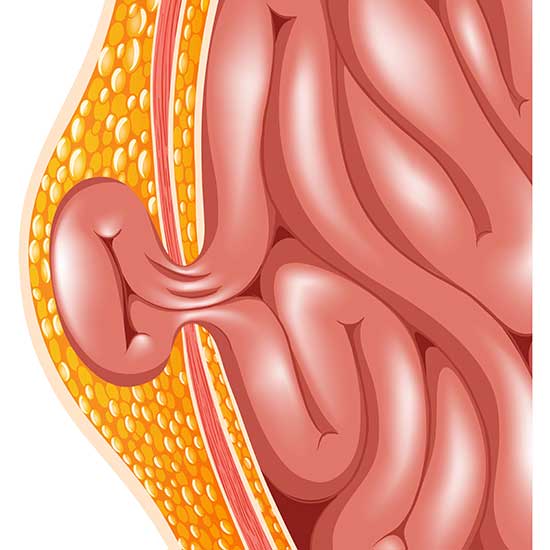Symptoms of an inguinal hernia:
Most hernia patients experience pressure and protrusion of the belly, being especially present after physical activity. In rare cases, there can also be an acute pain caused by incarceration.
Should parts of the intestines be incarcerated, that can lead to circulation problems and ileus (intestinal obstruction), with vomiting and severe long-lasting pain. This is a life-threatening condition and must be surgically treated immediately. If the surgery is performed too late, parts of the intestine might have to be removed.
Should parts of the intestines be incarcerated, that can lead to circulation problems and ileus (intestinal obstruction), with vomiting and severe long-lasting pain. This is a life-threatening condition and must be surgically treated immediately. If the surgery is performed too late, parts of the intestine might have to be removed.
Treatment for an inguinal hernia:
Suspensory bandages are only an option for elderly patients. Otherwise, surgery is much recommended.
Surgical methods:
Open surgical procedures are especially suited for elderly patients or patients with many accompanying illnesses. In minimally invasive procedures a hernia is laparoscopically sealed with mesh. Laparoscopic procedures have the advantage of very fast healing and recovery. Usually, 7 days after surgery the patient is able to function just as always.
Choosing the correct procedure should be an individual process, and is advised carefully by Dr. Michael Kisser in Vienna.
Risks and long-term results of an inguinal hernia surgery:
Stitches and mesh are usually well-tolerated by the body and are incorporated into the healing process. When the surgery is done correctly, the inguinal hernia is removed permanently and will not reoccur. In rare cases, patients report a pulling pain in the groin.



